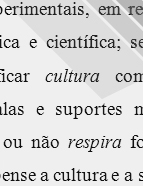

................................
New didactics and grammar, and the emphasis on the study of national history (Letter VIII) and language (Letter I), to the detriment of ecclesiastical history and Latin—the language of European treatises that linked them in a common linguistic space for centuries —, encouraged the teaching of modern languages, with a clear emphasis on French and Italian, and demanded the comparative study and lexicographical organisation of verbal, lexical, and syntactic reciprocities with Portuguese, whose discipline and orthographic simplification were proposed. However, such a challenge was insufficiently heeded: while the rational dawn opened by Pombalism was visible in the learning of the empiricism of the world and exact sciences, it was barely more than illusory in humanistic studies. The broad lack of solid philosophical training in middle and higher education would negatively condition the historical and philological inquiry into the national culture. Tied to the hegemonic canonical-theological matrix of the Portuguese university, institutional study progressed in the field of Law (Ecclesiastical History, History of Roman and Portuguese Law, History of Canon Law), mostly penned by Pascoal de Melo Freire (Historiae Juris Civilis Lusitani, 1788), but the historical examination of culture as an autonomous object was distant, outlined or merely circumscribed to literary tradition and grammatical, poetic, rhetorical study. In the historiographical field, erudition, the compilation of sources, and diplomatics (João Pedro Ribeiro, Viscount of Santarém) took logical priority, as in the mid-19th century Alexandre Herculano would still certify in Portugaliae monumenta historica, an effort to resume the erudite and academic tradition that the social and political-military evanescence of the century had thwarted, as noted by Oliveira Martins ("Notes on historiography," História de Portugal, 1920).
5. "National Culture". The Enlightenment wave was soon subsumed by a cultural bureaucracy that downgraded it into university apostilles. The movement of ideas that preceded and accompanied Liberalism in 1820 and 1834 was not unrelated to the desire to constitute a Republic of Letters that would regenerate culture and, within it, Portuguese society. Romanticism and its tolerant sema, which furnished its worldview—without omitting the repressive impact that the tribunal of faith represented in the Iberian cultural space for three centuries-found in History the pedagogical role of liberal citizenship, tempering the excessively abstract and cosmopolitan perspectives typical of 18th-century Enlightenment vulgarisations.
